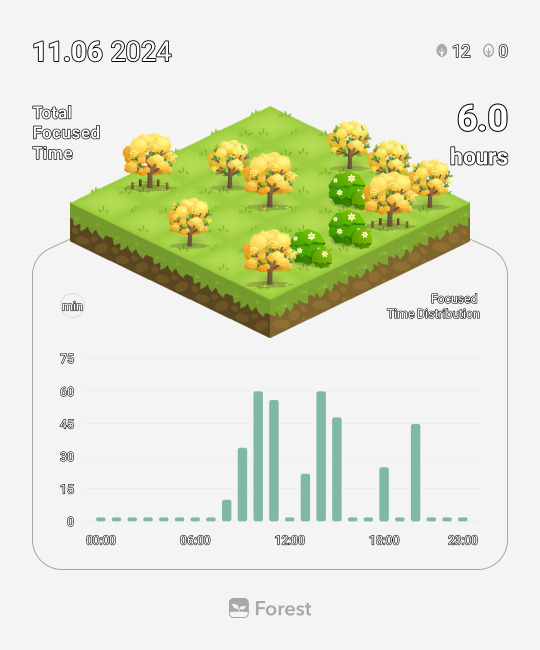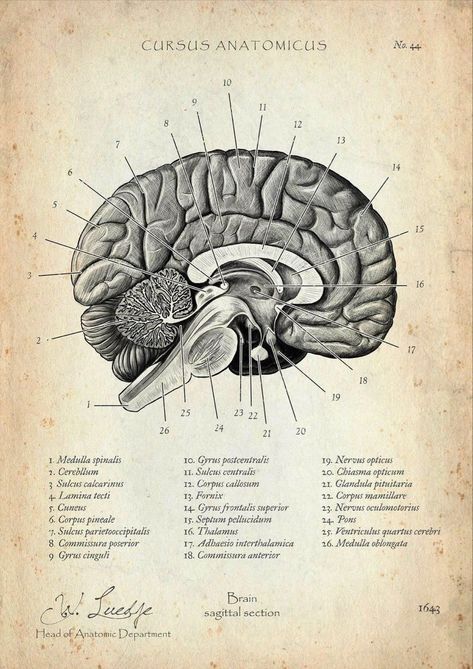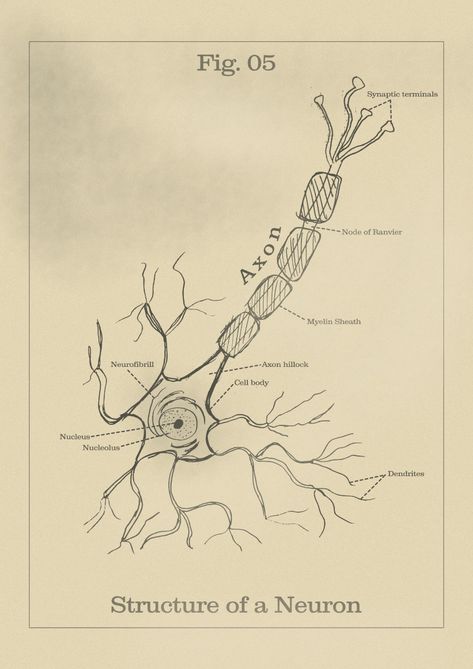#cognitive development in students
Explore tagged Tumblr posts
Text
Chess Event Marks Double Celebration at J.H. Tarapore School
International Chess Day and Coach’s Achievement Honored International Chess Day festivities at J.H. Tarapore School highlight chess’s educational value and recognize coach’s international status. JAMSHEDPUR – J.H. Tarapore School commemorated International Chess Day with a dual celebration, honoring the global chess community and their coach’s recent accomplishment. The school grounds buzzed with…
#Academic Excellence#शिक्षा#Chess Coaching#chess education benefits#cognitive development in students#education#extracurricular activities in schools#International Arbiter achievement#International Chess Day#J.H. Tarapore School#School Celebrations#student mental development
1 note
·
View note
Text
Are we waking up to reality yet? Anne Frank had nothing to do with Gaza, so there is no reason to deface her statue unless the real reason is nothing to do with Gaza.


This is a pretty low thing to do, but I'm sure they're going to find a way to sink even lower.
#spilled thoughts#current events#israel hamas war#news on gaza#gaza news#gaza#internalized beliefs#internalized antisemitism#antisemitism#personal development#campus protests#student protests#university protests#israel palestine conflict#anti israel propaganda#humanity#human experience#news update#anne frank#jew hatred#jew haters#self image#self concept#lack of awareness#denial#cognitive dissonance#hamas apologists#leftist antisemitism#leftist hypocrisy#uk protest
74 notes
·
View notes
Text
How I Deal with Tough Days When My Brain Won't Let Me Work
We all have those days where productivity feels impossible. It’s like no matter what we do, we just can’t seem to get started. I’ve come to realize that, for me, these days aren’t just about laziness or lack of motivation—it’s more complex. When I procrastinate, it’s often my creative brain, or what I like to call my “inner child,” throwing a tantrum.
Step 1: Understanding the Procrastination
The first thing I do is pause and try to understand what I’m running away from. Is it the overwhelming amount of work? In that case, I break it down into smaller, manageable bits. When the material feels boring, I add some fun—by creating colorful and funny interpretations of definitions or concepts. I turn words into weird characters, almost like a cartoon in my mind. Sometimes, I’ll turn it into a game, like seeing how many questions I can get right, or even trying new study techniques like rewriting a sentence or reading it out loud.
I find that when I’m bored, it’s a perfect opportunity to experiment. I might try drawing funny sketches of the material or use quirky interpretations to make it more interesting. The key is that I have to figure out what’s causing the procrastination—is it fear, perfectionism, or just the sheer volume of work?
Step 2: Naming My Inner Child
Once I understand what’s happening, I like to give my inner child a friendly name. This helps me communicate with it when things get tough. Every time I mess something up and feel like quitting, I know that it’s just my inner child reacting to the idea of perfectionism. Naming it makes it less scary, and I feel more in control of the situation.
A perfect example would be the time I noticed that my inner child shows up in my skincare routine, but not because I’m lazy—it's because I feel unmotivated when I don’t have enough of those colorful, trendy products, like the ones all over TikTok. You know, the Drunk Elephant skincare, with its fun packaging that every influencer seems to have. It taps into the same idea as “Sephora kids,” where even as adults, we’re drawn to overconsumption of things we don’t actually need, just because they’re colorful or trendy or aesthetically pleasing.
But I’ve realized that I don’t need fancy, colorful products to wash my face before bed. My inner child might crave those items, but recognizing that helps me let go of the unnecessary pressure to follow trends. I focus on the routine itself, rather than what’s missing from my shelf.
Step 3: Clearing the Distractions
Next, I clear my desk. Anything that’s not a school supply or a tool I need for work can be a distraction, especially if it’s colorful or unrelated to my task. I set a 5-minute timer and start working, just to show my inner child that it’s really not that scary. Once the timer’s up, I double it, taking short breathers in between. I repeat this until I feel like I’ve done enough for the day.
Step 4: Knowing When Enough Is Enough
After a certain point, I trust my own judgment. I ask myself honestly, “Is this enough for today?” If I feel like I’ve given it my best shot, I let go of the need to do more. I accept that some days will be harder than others, and that’s okay. The important thing is that I’m not fighting my inner child, but working with it.
It’s a simple process, but it’s effective. Instead of battling myself, I’ve learned to communicate with that part of me that gets overwhelmed, bored, or perfectionistic. By understanding and breaking things down, I can get through even the toughest days without feeling like I need to drop everything.

P.S.: I’ve struggled to stay productive most of my life, and a part of that was because I didn’t grow up in one of those aesthetically pleasing, western-style homes you always see on social media. I live in the Balkans, and my bedroom looked nothing like that. It wasn’t perfectly curated or full of trendy decor, but over time, I grew to love my culture and my surroundings. Even though I wasn’t the richest or living the most "aesthetic" lifestyle, I’ve learned that what I have is enough, and it doesn’t define my ability to be productive or happy.


#productivity#productive#100 days of productivity#girlblogging#discipline#aesthetic#femininity#self care#self development#self help#self improvement#street style#bedroom#balkan#study blog#study motivation#student#studyspo#study aesthetic#study tips#study time#study#skincare#girl blogger#david goggins#psychology#cognitive#deep thoughts#ranting#study hacks
35 notes
·
View notes
Text

{ 06.11.24 } · { 50 days of routine } · { day 8 }
i have to fill in a daily activities sheet for four days as part of the CBT workbook 😑 so for the next four days, you'll be suffering along with me, seeing my messy handwriting 😂

as you can see, i probably used my phone way too much today compared to the amount of stuff i have to do 🙃🥲🥲🥲 idk, what do you do when your brain needs a break and your body just really doesn't want to do anything either? 😅 i fear if i lay in bed to decompress, i will never want to leave it lol 😂
also. i have reached a new record. 90 tabs on my laptop browser. 🥲 (dw, i expect a good chunk of it will go away when i'm done with the global health assignment...only to go back to an insane number when i start the next one soon)
🎧 yesterday once more / i won't last a day without you – the carpenters
#studyblr#stemblr#stem academia#stem student#100dop#100 days of productivity#studyspo#study motivation#50 days of routine#100 days of studying#100 days of self discipline#mittonstudies#astudentslifebuoy#becoming that girl#yoga#mental health#therapy#cognitive behavioral therapy#studyingwithmila#heyfrithams#heydilli#self improvement#self development#self care#self love#that girl#it girl#health and wellness#lifeblr#lifestyle
21 notes
·
View notes
Text
Richard James Rogers, award-winning author and pedagogical expert, describes the process of interleaving. Rogers is the first person ever to describe generalisable rules for applying interleaving in the secondary classroom.

View On WordPress
#active learning#classroom techniques#cognitive load theory#cognitive science#education#Effective Teaching#evidence-based teaching#formative assessment#instructional design#interleaving#learning science#long-term memory#memory retention#pedagogy#retrieval practice#richard james rogers#Richard James Rogers award-winning author#Richard James Rogers bestselling author#Secondary Education#spaced practice#student learning#teacher professional development#teaching#teaching strategies#The Quick Guide to Classroom Management#The Quick Guide to Classroom Management: 45 Secrets That All High School Teachers Need to Know
0 notes
Text
Living Intelligence: The Convergence of AI, Biotechnology, and Advanced Sensors in Education
By Ariel Can the classroom of the future actually learn from students? Imagine an environment where lessons adapt in real-time to each student’s needs, where smart sensors monitor cognitive load, and where AI-driven tutors adjust content dynamically to ensure mastery. This is the emerging reality of Living Intelligence—a cutting-edge blend of artificial intelligence, biotechnology, and advanced…
#adaptive learning environments#ai#AI in education#AI-assisted grading#AI-driven curriculum development#AI-driven lesson plans#AI-powered tutors#AR and VR in education#artificial intelligence in schools#biometric feedback in education#biotechnology in education#cognitive engagement tracking#digital learning transformation#education#educational neuroscience#educational technology trends#ethical AI in education#future of learning#future of STEM education#immersive learning experiences#integrating AI in schools#interactive learning environments#learning#machine learning in schools#next-gen education technology#personalized learning with AI#predictive analytics in education#real-time learning analytics#real-time student assessment#smart classrooms
0 notes
Text
Writing Notes: Critical Thinking

Critical Thinking - the ability to examine information rationally and make a reasoned judgment based on your analysis.
Critical thinkers refuse to accept subject matter at face value and are aware of their own cognitive biases, which allows them to approach objective conclusions.
Higher-order thinking skills like critical thinking enable you to learn actively, rather than passively absorbing information as it's presented to you.
How to Improve Your Critical Thinking Skills
The development of critical thinking skills takes time, but there are some particular ways to speed up the process. As a starting point, follow these steps for teaching critical thinking.
Pinpoint the issue. Whether it's a problem that needs solving or a question that needs an answer, begin the critical thinking process by identifying the issue at hand.
Collect information. Accumulate as much research and data on the issue as possible. Make sure to seek out sources that challenge your own beliefs.
Examine and scrutinize. Check that your sources of information are reliable, determine their biases, and ensure any opinions are backed up by hard evidence.
Decide what's relevant. Figure out which arguments are actually relevant to your issue, and flag the most consequential pieces of information.
Self-evaluate. Ask yourself, "Was I biased when seeking information?"
Draw conclusions. Decide on one or more possible conclusions. Evaluate the soundness of your conclusions and flag any flaws.
Explain your conclusions. Clearly communicate your conclusions to the relevant parties.
Examples of Critical Thinking Skills
There are many important elements involved in thinking critically. To become a better critical thinker, familiarize yourself with these key concepts.
Open-mindedness: Critical thinkers must work to have unbiased thought processes and remain open to more than one point of view. This openness to challenging information is a foundation for critical thinking.
Analysis: Analyze information to determine its reliability and to understand it well enough to draw further conclusions. This is one of the most important aspects of critical thinking.
Interpretation: Take time to interpret your analysis, synthesizing, and deciphering the meaning of relevant information.
Problem-solving: Once you analyze and interpret a problem, you can come up with one or more possible solutions.
Decision-making: By making a decisive decision, you come to a conclusion based on the data you have interpreted.
Effective communication: You must be able to convincingly explain your conclusions (and the thought process behind them) to others.
Self-improvement: Good critical thinkers develop positive habits of mind by reflecting on their own personal critical thinking process and looking for ways to improve it.
The greatest benefit of critical thinking is simply that it helps you make more informed decisions in your everyday life.
Strong critical thinking abilities are especially important in both secondary and higher education environments; critical reading and thinking skills allow high school and college students to engage in learning at the highest level.
Critical thinking is also an important skill in your professional life. Employers value workers who tackle problems logically and view situations from different perspectives in order to come up with the best solution. If you're in a job interview and can demonstrate to your potential employer that you have a proven track record of thinking critically, there’s a better chance you’ll get hired.
Source ⚜ More: Notes & References ⚜ Writing Resources PDFs
#critical thinking#writing tips#writeblr#literature#writers on tumblr#writing reference#dark academia#spilled ink#writing prompt#creative writing#writing advice#on writing#writing analysis#studyblr#writing inspiration#writing ideas#light academia#lit#writing resources
199 notes
·
View notes
Text
Attention: Health and Safety Alert
Dear Students, Faculty, and Staff,
It has come to our attention that a serious outbreak of a virus illness has been seriously harming our campus community. We take this public health threat very seriously and want you all to be aware and alert so that you can stay safe.
As a matter of transparency, we want to be clear on the origin of this virus. The Frontal Recognizance Transmutation Arenavirus 24 (often called just arena or FRT-24) has been a known threat for some time, with clear symptoms from infected individuals. A research lab on campus was known to have been studying its effects. This particular strain, the alpha variant, was of particular interest, so when a sample went missing, we exhausted campus resources to locate it. We were unable to and are now deeply sorry to our campus community. We take full responsibility for the current outbreak.
FRT-24 is highly contagious, so it is important to know the immediate signs. Look for:
Sudden headaches or migraines
Dizziness or loss of vision
Fevers and chills, especially paired with heavy perspiration
Loss of cognitive functions
Rapid muscle swelling
If you are infected, symptoms may take up to three days to develop, and you may still be a vector in this time. As the disease takes hold, you may notice a change in mood, as a lack of interest in usual activities. Instead, the disease drives the infected towards spreading. Common hubs seem to be gyms, parties, and social gatherings. We have also noticed an uptick in fraternity membership this year, a possible sign of disease spread.
Know the signs in yourself or others, as often the infected will not show traditional signs of ailment. This student has given us permission to share his story:

This young man was a healthy Junior just a few weeks ago. He was a promising young academic in biochemistry, hoping to one day do research on emergent diseases. Since his experience with FRT-24, his life is forever changed.
The changes are alarming. He has gained over 100 lbs and been unable to focus on his studies. Instead, he was spending hours in the student rec center, consumed by his illness as he worked his body to exhaustion. Since his quarantining, he has been unable to answer any basic questions about his academic career or research project. Instead, he has shown a hallucinated knowledge of a personal training and fitness program. As an early vector, we are aware of at least 10 other students who were infected before his quarantine, and he is being held for further observations on disease progression.
Thankfully we have been able to identify the method of transmission. At this time, it seems bodily fluids are most transmissible method. It seems that this virus enhances the body in this respect. Those infected will often try to spread by any means necessary. They are very good at finding susceptible men, isolating them, and finding ways to expose them directly to their sweat, saliva, and in some cases semen. They will be desperate for any chance to get you alone with them, to join their ranks. Do no be drawn in by promises of muscle, of status, or ease of life. Their brains are no longer their own. They only seek to make you a drone for FRT-24.

While we are still in the early stages of understanding the virus, we would like to acknowledge the valiant work done by Dr. Pulaski and his team of researchers. They have lead the way in this fight, throwing themselves at this dangerous line of work. Without their noble sacrifice, we would be still months from understanding the origins of this outbreak. We have narrowed down the point of origin to a party held a few weeks ago in the PKE frat house. At this time, it is unknown if frat leadership was in any way involved with this outbreak.
Sadly, Dr. Pulaski was found earlier this week a few days after conducting interviews and performing sample retrieval from the PKE house believed to be the epicenter. He was found shirtless, flexing his newly formed muscles in the mirror at the student rec center.

When reached for comment, he only smirked and reported “feeling great, bruh,” a clear sign of decline. We are still uncertain if he has exposed any of his other researchers to the disease.
Remember, you are responsible for yourself and out campus community. If you suspect you or someone you know has been exposed, please report to the Student Health Center immediately for examination. In the mean time, please stay safe everyone. We will continue to keep you updated as we know more
Regards,
Dr. Brendan Host, President
Congrats @occamstfs on 2k followers. I hope you all enjoy a late entry to the party. Go out and check out the other writers under the #occam2000 tag, some great stuff in there. And don't worry, FML: Initiate is coming soon.
750 notes
·
View notes
Text
due to the circumstances, fell into a hole of reading through the archives of a blog that got deleted ~8 years ago
Reminds me of research on how ‘gaze aversion’ (e.g. avoiding eye contact) helps people think by removing the cognitive and emotional load of face processing, etc., so teachers who get caught up in forcing students to make eye contact are missing the point. Likewise abstract doodling while listening helps improve recall. Speech is so bad for conveying information, people need all the help they can get when forced into speech-based learning scenarios, really.
the writer has a bone to pick with lectures & orally-delivered information: they don't like 'em. i don't disagree from personal experience but i don't know enough to agree in the general case. maybe other people do learn well from lectures.
the gaze aversion link led to me to this paper on gaze aversion in adults with and without autism, williams syndrome by the same researcher.
[...] in phase 2 participants were required to maintain eye contact with the experimenter at all times. Looking at faces decreased task accuracy for individuals who were developing typically. Critically, the same pattern was seen in WS and ASD, whereby task performance decreased when participants were required to hold face gaze. The results show that looking at faces interferes with task performance in all groups.
to listen to some people talk about it, you'd think that only autistic people suffer do worse from being made to maintain eye contact. ... actually, given the rest of the wording in the paper, you might be able to say that NT people don't suffer from it, they just suck more when made to maintain eye contact, whereas the autists suffer. but i think more research is required.
this is only one paper and i haven't bothered to look into replicability or reliability or literally anything else about it. perhaps the author has been kicked out of the profession for making shit up. perhaps they are a pioneer. idk. i bring it up only as 'some authoritative-looking people have this position, so it's probably not completely without basis'.
....
perhaps one issue with lectures is that the audience can't fidget without causing a problem. (i can't sit still to watch movies but can watch them for hours with a treadmill)
---
less thought out position: i think people as a whole are bad at teaching.
i tried to look up why the fuck every curry i cook at home sucks, and instead i got a bunch of people talking about how it's impossible to learn to cook it if you haven't grown up there copying your parents' (=your mother's) cooking. that which can be destroyed by women's liberation should be.
went to a certain woodblock studio once. as i recall, the owner talked admiring about how the traditional way to learn to do the prints was to 'steal' the techniques from the person working next to you; very little direct instruction, but pick it up from noticing. it takes years and years to get good.
this works okay -- i mean, i suspect a large part of it was hazing, so i hesitate to say it worked well -- if you don't have better options, but what happens when there's no one able to take years and years to get good?
transmitting information is hard! it's really, really hard! i can't blame the people writing it down (or lecturing, or otherwise) for stopping at 'good enough'.
but like....
Have you ever had a book like this—one you’d read—come up in conversation, only to discover that you’d absorbed what amounts to a few sentences? I’ll be honest: it happens to me regularly. Often things go well at first. I’ll feel I can sketch the basic claims, paint the surface; but when someone asks a basic probing question, the edifice instantly collapses. Sometimes it’s a memory issue: I simply can’t recall the relevant details. But just as often, as I grasp about, I’ll realize I had never really understood the idea in question, though I’d certainly thought I understood when I read the book. Indeed, I’ll realize that I had barely noticed how little I’d absorbed until that very moment.
though given how many (nonfiction) books suck (=get the facts wrong, make logical jumps that are unjustified, etc), perhaps it's for the best we don't remember much
It’s easy to attend a lecture and feel that you understand, only to discover over that night’s problem set that you understood very little. Memory feels partly to blame: you might sense that you knew certain details at one time, but you’ve forgotten. Yet we can’t pin this all on memory. When you pull on certain strings from the lecture, you might discover that you had never really understood, though you’d certainly thought you understood during the lecture.
partner had a beloved professor in university who had a particular reality-warping field; it was so easy to come away from the lectures on a very hard topic believing one had understood everything! everything!
272 notes
·
View notes
Text
the reliance of college students on gen ai thing is particularly crazy to me as a college writing instructor whos also about to finish an educational psychology certificate because like one huge thing ive learned in my classes is that the american college system is pretty dogshit at teaching students when it comes both to content mastery and also preparing them for the workforce. like these kids are graduating college and going into jobs that they have their degrees in and dont know how to thrive in the workforce and Also dont really know much about the thing they got their degree in. and theres a lot of reasons for that that i could go over in depth but i'll spare yall
BUT the thing that college is like the most decent at is changing the way people think about knowledge itself. further education (high school to undergrad to graduate school) is a huge factor in what develops your epistemological beliefs (epistemology being the nature and theories of knowledge). like your epistemology does naturally change as you get older, but with further education you learn that knowledge itself is complex, ever changing, and interrelated, meaning you inherently trust "facts" less and actually perform critical thinking when presented with new information
but,,,,,, with that new study microsoft did on generative ai showing that usage of gen ai in the workplace can lead to the degradation of independent problem solving skills and that people who trust gen ai actively use less critical thinking to do tasks,,, and that giving yourself fewer opportunities for critical thinking degrades your ability to think critically at all even when it comes to important tasks,,,
like. all these students are using gen ai and sometimes their classes are actively encouraging them to use gen ai and i fear were losing like the one big thing american undergrad is good for bc lets be real its pretty dogshit at everything else
and considering the nature of the topic:
Bransford, J. D., Brown, A. L., Anderson, J. R., Gelman, R., Glaser, R., Greenough, W. T., Ladson-Billings, G., Means, B. M., Mestre, J. P., Nathan, L., Pea, R. D., Peterson, P. L., Rogoff, B., Romberg, T. A., & Wineburg, S. S. (2000). How people learn: Brain, mind, experience, and school. National Academy Press. (pp. 31-50) Lee, H.P., Sarkar, A., Tankelevitch,L. Drosos, I., Rintel, S., Banks, R., & Wilson, N. (2025). The impact of generative AI on critical thinking: Self-reported reductions in cognitive effort and confidence effects from a survey of knowledge workers. CHI Conference in on Human Factors in Computing Systems. https://doi.org/10.1145/3706598.3713778 Mezirow, J. (2000). Learning to think like an adult: Core concepts of transformation theory. In J. Mezirow (Ed.), Learning as transformation: Critical perspectives on a theory in progress (pp. 3-34). Jossey-Bass. Svinicki, M. D. (2004). Learning and motivation in the postsecondary classroom. Boston: Anker Publishing Company, Inc. Torff, B., & Sternberg, R. J. (1998). Changing mind, changing world: Practical intelligence and tacit knowledge in adult learning. In M. C. Smith & T. Pourchot (Eds.), Adult learning and development: Perspectives from educational psychology (pp. 109-126). Lawrence Erlbaum
101 notes
·
View notes
Text
Why does the MSM/CNN/BBC/Sky and so many others happily accept the word of murdering Hamas propaganda without question? Stupidity, or connivance?

#spilled thoughts#internalized antisemitism#internalized beliefs#current events#student protests#university protests#campus protests#uk protest#war news#news update#gaza news#gaza#israel#media bias#manufactured consent#anti israel propaganda#gaza complicit#news on palestine#palestinian terrorism#uk universities#university#personal development#self education#self improvement#cognitive bias#israel palestine conflict#genocide#hamas genocide#woke liberal madness#uk media
9 notes
·
View notes
Text
merit | team yn
masterlist





team yn
2nd year college students
yn
taking up cognitive science, decision & cognition track
the hardworking, passionate, competitive girl
she was instilled with the mindset that she has to do her best to fulfill her purpose
contrary to what it may seem, there isn’t really that negative pressure to push herself too hard
she doesn’t get “burnt out” because she has a healthy mindset
you could say she’s a positive person - “i’m doing this because i want to be my best, and not because my parents say so”
and at the same time, she enjoys it a lot; being active, studying, putting herself out there - it’s her personality so she doesn’t have hidden wounds about it
views as her competition with akaashi as challenging. she started it, but well it was more of an exciting thing for her
like she hates it when she loses but it drives her to be better, yk?
despite her passion, she doesn’t push her friends to be the same though
she is very reliable and helps her friends a lot when it comes to acads and others
but she doesnt pressure them, if that makes sense
also has a big brother ! athletic, smart, and two years older than him, but he’s chill ! same univ but diff course
hajime iwaizumi
also taking up cogsci, cognitive neuroscience track
big bro of the group lowkey !
he helps yn a lot - drives her to places, assists her if she needs help with class rep or org duties
serious and protective of his friends, but calming when anybody’s crashing out
smart too but iwa < yn, they’re both very hardworking in that sense
is team yn with the rivalry ofc, he’s more neutral over akaashi though
like “i don’t care about you but i don’t want you to d1e though” lol
when for example, akaashi gets a win, he just calms yn down by thinking of other opportunities she could win the next time
meaning he’s not a basher much LOL but again he does help yn out so if he has info he says it
either is on the same side or opposite side of tsukki in situations, no in between
like they’re either so passionate about how they disagree or the other way around
in the same building as oikawa’s dorm, though they’re in different floors (this has a story wait for oikawa’s - spoiler alert - but also not actually)
whenever oikawa would talk about the two’s rivalry he would just let him be LOL
and as you've seen, his socmed is handled (hacked) by oikawa sumtimes
hitoka yachi
this girl is taking cognitive science too, cognitive development track
in this world, her heart is in creating environments where learning feels safe, accessible, and encouraging, especially for children and neurodivergent people !!!
yn’s girl <3 her roommate as well
academically smart < creative !
still the clumsy, artsy friend though!
lowkey a basher LOL but yachi < noya
she kinda hated akaashi’s group esp before they got together
when tsukki asked why she just answered: “because theyre men ???”
it probably was influenced with the rivalry though
“they open their mouths too much” LMAO
the one who initiates hangouts in the group
she’s special because she’s the one where yn can show her feminine side a lot
not that yn conceals it, but she just has more of a “hardworking competitive student” vibe than a girly girl one
they study together at cafes - she asks yn to tutor her (it's her love language ok)
yn’s not a strict teacher w her so when yachi gets overwhelmed she’ll just let her sleep while she continues to do her stuff LOL
yuu nishinoya
a sports science~ major
it sounds fancy but he chose it because he's well... he's athletic (even in this world)
he took it up coz it sounded smart and he was like, "oh it'll just be like a sciencey PE subject right?"
HE HAS ANOTHER CAST WITH HIM IN THE SAME MAJOR !!! STAY TUNED WHO LOL (yeah it's from the other group)
an akaashi hater LOL
“don’t mind him yn he’s not that smart even”
“he talks all smart i dont even understand anything he says”
as always the chaotic one
partners up with yachi a lot, esp when it comes to studying (they love dozing off together)
is just like a solid yn supporter
“QUEEN”
“YOUR BRAIN IS SACRED YN”
gets scolded a lot by iwa but he doesn’t really care
treats yn lowkey like a mom sumtimes (esp when iwa is annoyed at him)
has a lot of petty arguments with tsukki - also his roommate
would come over to yn and yachi’s place whenever he has a fight with tsukki
it would get as petty as “he didnt want to hear me chewing on my chips”
kei tsukishima
also a cogsci major, computation & cognition track
idonteven think i should explain this because he smart right
as mentioned in previous characters, he argues a lot
starts the petty fights with noya most of the time
here’s the thing - he’d make a comment that he thinks is subtle and noya would get fed up
and then he’ll think it’s ridiculous to argue over it (but they’re already arguing)
doesn’t really care about yn and akaashi's rivalry
he just wonders why yn is so pressed about it since he’s closer to her
“it doesnt really matter tho”
“you’ll live”
“stop being obsessed”
“are you inlove with him” (subtle foreshadowing)
he’s smart but he’s not as passionate as yn
he could be if he tried though, but well it’s a chore for him
when you ask him for a hangout suggestion, he’ll always recommend the bar
because he loves watching live bands

note: these are how i envisioned them to be when i started forming this smau. but along the way, there might be times their personalities may shift a little and/or expand more. just wanted you guys to take note of this in case i forget some of the details i wrote down here or make something along the way that might not be written here. but rest assured the core of their personalities will be consistent throughout !
i had to research a LOT because i have to focus on their majors (at some point) for this story ! don't worry though i'm dumb so they're not gonna sound all academic much really LOL. i just had to make it make sense and create a world where they were really focused on univ (esp for the main leads).
anyway, stay tuned for the bros...

taglist: @lvtilzs @tojirin @mayyhaps @tenjikusstuff4 @3lectraheart @kaikaidenkai @avis-writeshq @x3nafix @reverd-ck @mintynoo @loveyislost @nishinoyaismycutie @applepi-05 @cupidsblonde @kokoiinuts
#haikyuu#hq#haikyuu fanfiction#haikyuu x reader#hq fluff#haikyu x reader#haikyuu fluff#haikyuu smau#akaashi#akaashi keiji#akaashi x reader#haikyuu akaashi#hq akaashi#akaashi x you#keiji akaashi#iwaizumi hajime#haikyuu iwaizumi#yachi hitoka#haikyuu yachi#haikyuu x you#haikyuu x y/n#nishinoya yuu#haikyuu nishinoya#haikyuu tsukishima#tsukishima kei#haikyuu bokuto#bokuto koutarou#tetsurou kuroo#haikyuu kuroo#kozume kenma
58 notes
·
View notes
Text
Excerpts:
"The convenience of instant answers that LLMs provide can encourage passive consumption of information, which may lead to superficial engagement, weakened critical thinking skills, less deep understanding of the materials, and less long-term memory formation [8]. The reduced level of cognitive engagement could also contribute to a decrease in decision-making skills and in turn, foster habits of procrastination and "laziness" in both students and educators [13].
Additionally, due to the instant availability of the response to almost any question, LLMs can possibly make a learning process feel effortless, and prevent users from attempting any independent problem solving. By simplifying the process of obtaining answers, LLMs could decrease student motivation to perform independent research and generate solutions [15]. Lack of mental stimulation could lead to a decrease in cognitive development and negatively impact memory [15]. The use of LLMs can lead to fewer opportunities for direct human-to-human interaction or social learning, which plays a pivotal role in learning and memory formation [16].
Collaborative learning as well as discussions with other peers, colleagues, teachers are critical for the comprehension and retention of learning materials. With the use of LLMs for learning also come privacy and security issues, as well as plagiarism concerns (7]. Yang et al. [17] conducted a study with high school students in a programming course. The experimental group used ChatGPT to assist with learning programming, while the control group was only exposed to traditional teaching methods. The results showed that the experimental group had lower flow experience, self-efficacy, and learning performance compared to the control group.
Academic self-efficacy, a student's belief in their "ability to effectively plan, organize, and execute academic tasks"
', also contributes to how LLMs are used for learning [18]. Students with
low self-efficacy are more inclined to rely on Al, especially when influenced by academic stress
[18]. This leads students to prioritize immediate Al solutions over the development of cognitive and creative skills. Similarly, students with lower confidence in their writing skills, lower
"self-efficacy for writing" (SEWS), tended to use ChatGPT more extensively, while higher-efficacy students were more selective in Al reliance [19]. We refer the reader to the meta-analysis [20] on the effect of ChatGPT on students' learning performance, learning perception, and higher-order thinking."
"Recent empirical studies reveal concerning patterns in how LLM-powered conversational search systems exacerbate selective exposure compared to conventional search methods. Participants engaged in more biased information querying with LLM-powered conversational search, and an opinionated LLM reinforcing their views exacerbated this bias [63]. This occurs because LLMS are in essence "next token predictors" that optimize for most probable outputs, and thus can potentially be more inclined to provide consonant information than traditional information system algorithms [63]. The conversational nature of LLM interactions compounds this effect, as users can engage in multi-turn conversations that progressively narrow their information exposure. In LLM systems, the synthesis of information from multiple sources may appear to provide diverse perspectives but can actually reinforce existing biases through algorithmic selection and presentation mechanisms.
The implications for educational environments are particularly significant, as echo chambers can fundamentally compromise the development of critical thinking skills that form the foundation of quality academic discourse. When students rely on search systems or language models that systematically filter information to align with their existing viewpoints, they might miss opportunities to engage with challenging perspectives that would strengthen their analytical capabilities and broaden their intellectual horizons. Furthermore, the sophisticated nature of these algorithmic biases means that a lot of users often remain unaware of the information gaps in their research, leading to overconfident conclusions based on incomplete evidence. This creates a cascade effect where poorly informed arguments become normalized in academic and other settings, ultimately degrading the standards of scholarly debate and undermining the educational mission of fostering independent, evidence-based reasoning."
"In summary, the Brain-only group's connectivity suggests a state of increased internal coordination, engaging memory and creative thinking (manifested as theta and delta coherence across cortical regions). The Engine group, while still cognitively active, showed a tendency toward more focal connectivity associated with handling external information (e.g. beta band links to visual-parietal areas) and comparatively less activation of the brain's long-range memory circuits. These findings are in line with literature: tasks requiring internal memory amplify low-frequency brain synchrony in frontoparietal networks [77], whereas outsourcing information (via internet search) can reduce the load on these networks and alter attentional dynamics. Notably, prior studies have found that practicing internet search can reduce activation in memory-related brain areas [831, which dovetails with our observation of weaker connectivity in those regions for Search Engine group. Conversely, the richer connectivity of Brain-only group may reflect a cognitive state akin to that of high performers in creative or memory tasks, for instance, high creativity has been associated with increased fronto-occipital theta connectivity and intra-hemispheric synchronization in frontal-temporal circuits [81], patterns we see echoed in the Brain-only condition."
"This correlation between neural connectivity and behavioral quoting failure in LLM group's participants offers evidence that:
1. Early Al reliance may result in shallow encoding.
LLM group's poor recall and incorrect quoting is a possible indicator that their earlier essays were not internally integrated, likely due to outsourced cognitive processing to the LLM.
2. Withholding LLM tools during early stages might support memory formation.
Brain-only group's stronger behavioral recall, supported by more robust EEG connectivity, suggests that initial unaided effort promoted durable memory traces, enabling more effective reactivation even when LLM tools were introduced later.
Metacognitive engagement is higher in the Brain-to-LLM group.
Brain-only group might have mentally compared their past unaided efforts with tool-generated suggestions (as supported by their comments during the interviews), engaging in self-reflection and elaborative rehearsal, a process linked to executive control and semantic integration, as seen in their EEG profile.
The significant gap in quoting accuracy between reassigned LLM and Brain-only groups was not merely a behavioral artifact; it is mirrored in the structure and strength of their neural connectivity. The LLM-to-Brain group's early dependence on LLM tools appeared to have impaired long-term semantic retention and contextual memory, limiting their ability to reconstruct content without assistance. In contrast, Brain-to-LLM participants could leverage tools more strategically, resulting in stronger performance and more cohesive neural signatures."
#anti ai#chat gpt#enshittification#brain rot#ai garbage#it's too bad that the people who need to read this the most already don't read for themselves anymore
55 notes
·
View notes
Text
Living Intelligence: The Convergence of AI, Biotechnology, and Advanced Sensors in Education
By Ariel Can the classroom of the future actually learn from students? Imagine an environment where lessons adapt in real-time to each student’s needs, where smart sensors monitor cognitive load, and where AI-driven tutors adjust content dynamically to ensure mastery. This is the emerging reality of Living Intelligence—a cutting-edge blend of artificial intelligence, biotechnology, and advanced…
#adaptive learning environments#ai#AI in education#AI-assisted grading#AI-driven curriculum development#AI-driven lesson plans#AI-powered tutors#AR and VR in education#artificial intelligence in schools#biometric feedback in education#biotechnology in education#cognitive engagement tracking#digital learning transformation#education#educational neuroscience#educational technology trends#ethical AI in education#future of learning#future of STEM education#immersive learning experiences#integrating AI in schools#interactive learning environments#learning#machine learning in schools#next-gen education technology#personalized learning with AI#predictive analytics in education#real-time learning analytics#real-time student assessment#smart classrooms
0 notes
Text
it is horrific what we’re allowing to happen to children right now. if covid causes cognitive dysfunction and decline in adult brains, what impact will it have on small brains that are still developing? many children who are too young to even be vaccinated are catching covid, as well as a whole host of other opportunistic infections. children can get, are getting, long covid. children aren’t sick often because it’s “normal” or “good” for them—they’re sick often because they’re more vulnerable than adults.
children have no choice but to be sent to schools where they get sick again and again. they don’t have the ability to distance themselves from their parents and establish boundaries, they’re entirely reliant on their carers. if their parents do not believe in covid prevention, they have no means to protect themselves. they don’t have the ability to consent to what is happening to their health.
schools are not just allowing children who are sick to attend class anyway, they’re borderline mandating it. schools as an institution care more about meaningless attendance records than about students’ wellbeing. the classroom is an environment where all factors incentivize students coming to school sick.
there are horrific accounts from parents about kids being sick 24/7, never having energy, struggling with schoolwork. there are horrific accounts from teachers about their young students being different these days, unable to handle the usual schoolwork, showing signs of that classic covid “brainfog.” i’ve seen evidence of schools making their tests and criteria much easier in order to maintain an acceptable pass rate instead of addressing the actual core problem in the slightest.
i often think about a comment i read once about how someone knew it was fucked when no change happened after sandy hook, when the US decided and enshrined the fact that children were acceptable sacrifices. this is how it feels. this isn’t just about the US though. children are getting reinfected with covid again and again worldwide. this is about the entire next generation.
they didn’t choose any of this. they have no power to stop this whatsoever. none of us consented to this, obviously, but children most of all. most of them don’t even have any idea what’s happening to them, and won’t for years.
there needs to be a push for schools to adopt better covid prevention measures, like better ventilation and air filtration. but even more crucial, and much more difficult, is to do away with the ideology at the core of how schools are designed. just like how workers deserve sick leave, children need to be able to stay home when sick. no jumping through hoops for a doctor’s note to be accepted, no strict time limit. schools obviously know that 1 student staying home sick is less disruptive than 20 students being sick and unable to do their schoolwork. they know the math, but they aren’t after efficiency. just like companies know that happier workers are more productive. that’s not the point. it’s more obvious than ever what is choking our societies to death on every level.
i’ve seen university unions who’ve won teachers the right to demand masking in their lessons, the right to have air filters installed in their classrooms. the same needs to happen for K12 schools, especially since young children can’t advocate for themselves. parents could theoretically wield a lot of influence as well—but let’s face it, most are uninterested in or actively hostile to the idea of better air for their children. efforts to combat this need to be organized, sustained, and coordinated.
imagine how current children will feel once they grow up and look back and realize that their health was compromised before they even learned to speak, that they were born into a sick world, that they were born to be sick, not inevitably but because people preferred things this way.
740 notes
·
View notes
Text





the cognitive science students
a strong desire to understand your own mind
becoming comfortable with abstract concepts
an unending curiosity for things beyond the scope of current knowledge
comparing neural nets to webs of neurons
working eagerly towards the next groundbreaking discovery
debating the nature of consciousness
arguing over definitions of thought or awareness
searching for the roots of human knowledge
analyzing biases in your own way of thinking
learning how your brain perceives the world around you
realizing that perception is not the same as objective reality
neuroscience texts and philosophical treatises jumbled together in your bookbag
sketching simple diagrams of the brain in your notes
understanding the mind through computational attempts to imitate it
getting completely absorbed by a fascinating paper
effective study strategies backed by research
discussing the bounds of sentience, from blue whales to artificial intelligence
studying how the brain develops over a lifetime
combining research from different fields, seeking a more comprehensive understanding
a sense of awe at the mind's immense complexity
#student aesthetic#studying aesthetic#studyblr#studyspo#dark academia#dark acadamia aesthetic#academia#academia aesthetic#light academia#light academia aesthetic
113 notes
·
View notes